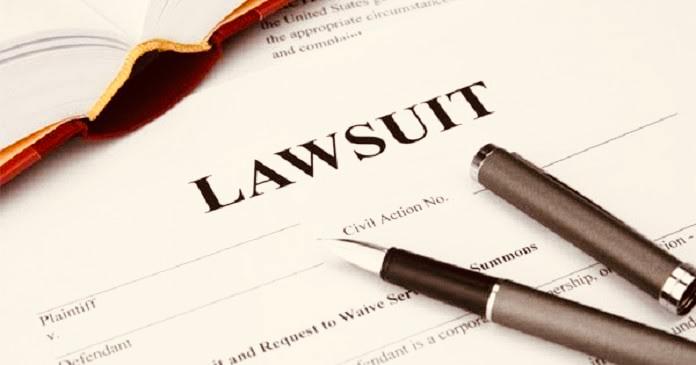 Order 14 CPC (Framing of Issues) and Order 15 CPC (Disposal of Suits at First Hearing)
Order 14 CPC (Framing of Issues) and Order 15 CPC (Disposal of Suits at First Hearing)
The Code of Civil Procedure, 1908 (CPC) lays down detailed rules for the conduct of civil trials in India. Two important provisions are Order 14 (Framing of Issues) and Order 15 (Disposal of Suits at First Hearing), which ensure clarity, efficiency, and fairness in the judicial process.
This article explains what issues are, how they are framed under Order 14 CPC, what preliminary issues mean, and how suits can be disposed of at the first hearing under Order 15 CPC.
What is an Issue in CPC?
An issue arises when one party affirms a material proposition of law or fact and the other party denies it.
• Material propositions are those which a plaintiff must allege to show his right to sue or a defendant must allege to constitute his defence.
• Thus, each material proposition affirmed by one party and denied by the other shall form the subject of a distinct issue.
Types of Issues
According to Order 14 Rule 1(4), issues are of two kinds:
1. Issues of fact
2. Issues of law
Issues of Fact – Example
Case: Suit for recovery of money
• Plaintiff’s pleading: “The defendant borrowed ₹1,00,000 from me on 1 Jan 2025 and agreed to repay it by 31 March 2025.”
• Defendant’s reply: “I never borrowed any money from the plaintiff.”
➡️ Issue framed: “Whether the defendant borrowed ₹1,00,000 from the plaintiff on 1 Jan 2025?”
Issues of Law – Example
Examples of legal issues:
• Whether the court has jurisdiction?
• Whether the suit is barred by limitation?
• Whether the claim is barred under Res Judicata or Order 2 Rule 2?
If a legal issue, when decided, can dispose of the suit, it becomes a preliminary issue.
What is a Preliminary Issue?
As per Order 14 Rule 2(2), a preliminary issue is an issue of law which, if decided, can dispose of the entire suit without going into a full trial.
Examples of Preliminary Issues:
1. Whether the court has jurisdiction to try the suit?
2. Whether the suit is barred by limitation?
General Rule vs Exception
• General Rule (Order 14 Rule 2(1)): The court must decide all issues (law and fact) together, even if the suit could be disposed of on a preliminary issue.
• Exception (Rule 2(2)): The court may decide only preliminary issues first, but only if they relate to:
1. Jurisdiction of the court, or
2. A legal bar to the suit.
After the 1976 Amendment: Courts cannot treat all legal issues as preliminary, except jurisdiction and legal bar, to prevent delay.
Materials Considered in Framing Issues
As per Order 14 Rules 1(5) & 3, the following materials are used for framing issues:
1. Plaint and Written Statement
2. Examination under Order 10 Rule 2 CPC
3. Answers to interrogatories
4. Allegations made on oath by parties or their pleaders
5. Contents of documents produced by either party
👉 The court can adjourn framing of issues for up to 7 days (1999 Amendment) and may also summon evidence for proper framing.
Amendment and Striking Out of Issues
• The court can amend issues or frame additional ones at any time before passing a decree (Order 14 Rule 5(1)).
• It may strike out wrongly framed issues (Order 14 Rule 5(2)).
Omission to Frame Issues
Failure to frame an issue is not always fatal. If parties understood the matter in controversy and went to trial, omission will not vitiate the proceedings ( Kamleshwaram v. Subbarao, AIR 1963 SC 884).
Order 15 CPC – Disposal of Suits at First Hearing
Order 15 CPC deals with situations where the court can dispose of suits at the first hearing itself, without proceeding to a full trial.
Cases where Court may Pronounce Judgment at Once
1. No dispute – When the parties are not at issue on any fact or law.
2. One defendant not at issue – Where one of the defendants is not at issue with the plaintiff.
3. After framing of issues – If the court finds no further evidence or argument is required.
4. Failure to produce evidence – Where summons was issued for final disposal and a party fails to produce evidence without sufficient cause.
Conclusion
The combined effect of Order 14 CPC and Order 15 CPC is to ensure that:
• Only real disputes go to trial.
• Cases involving no substantial controversy are disposed of quickly.
• Courts save time by identifying preliminary issues (jurisdiction/legal bar) early on.
Thus, these provisions strike a balance between fair trial and speedy justice, which is the very objective of the CPC.
To start your preparation for Judicial Services Examination at home, drop a message on WhatsApp +91 8840961324 or call us on +91 9151591324
At Theory of Abrogation, we equip you with everything you need:
•Subject-wise expert classes
•Mock test series
•Legal current affairs
•Personalized mentorship for interview preparation
“Your law degree is your foundation, but your preparation is what will build your success.”
Join Our New Batch Now!
Prepare smart. Prepare with Theory of Abrogation.
Contact Us:
B-109, Commercial
Complex Dr. Mukherjee
Nagar, Delhi-09
+91 9971399324 | +91 8840961324
[email protected]
